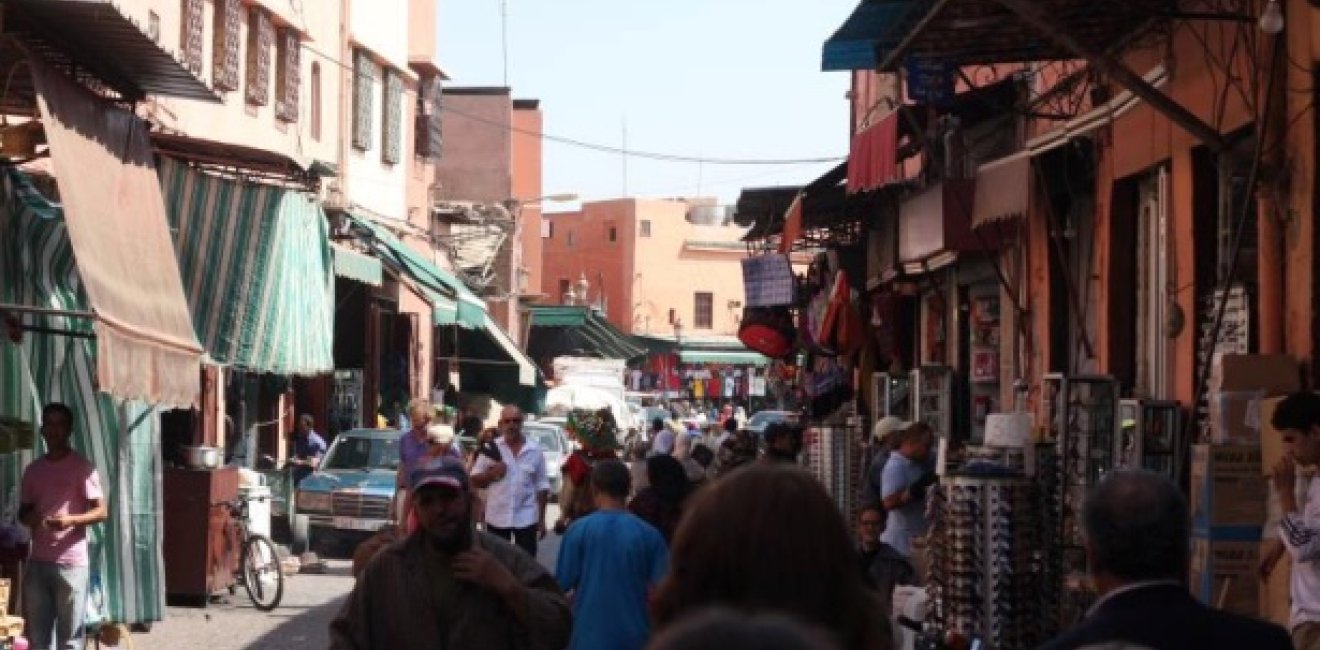
A blog of the Africa Program
Spanish Translation of the Week
Morocco was spared by the Arab Spring because when protests first erupted, King Mohamed VI was giving a speech on reforms that included the monarchy's transition to a Parliamentary system that would reign, but not govern. These changed were codified in a Constitution, approved in 2011, but change has come slowly: the King continues to preside over the Council of Ministers and the Supreme Judiciary Council. Yesterday, Spanish King Juan Carlos applauded these reforms and said that because of them, "Morocco today is a valuable example of openness and stability."
"Marruecos se libró de la primavera árabe porque cuando estallaron las primeras protestas en el país pidiendo que la monarquía se transformara en una institución parlamentaria que reinase, pero no gobernase, Mohamed VI pronunció un discurso anunciando reformas. Los cambios se plasmaron en una Constitución, aprobada en 2011, pero los avances fueron tímidos: el rey sigue presidiendo el Consejo de Ministros y el Consejo superior del Poder Judicial. Ayer, don Juan Carlos elogió esas reformas y aseguró que, gracias a ellas, "Marruecos es hoy un ejemplo muy valioso de apertura y de estabilidad."
This article has been translated from Spanish. Click here to read the original version on EL Pais
In the audience were four Moroccan and five Spanish ministers, nine foreign members of UCD, PP, and PSOE, and hundreds of businessmen from both countries. The group gathered for several hours in the ballroom of a Rabat hotel that promised "a space for shared prosperity."
King Juan Carlos recommended that those present "further strengthen economic ties:" "we have before us to create jobs and growth if we realize the potential for a strategic partnership between us," he said. He gave the example of the Fixed Link across the Strait of Gibraltar, an old project — Juan Carlos first discussed it with the late Hassan II, Mohamed's father, in 1979 — to create a rail link between the two countries: 38.7km long, 27.7 of which would be underwater. Ana Pastor, Minister of Development, met with the Moroccan Transportation Minister and agreed to resume work by SECEGSA and SNED to revive the project.
After the business meeting and the signing of an a cooperation agreement between the two heads of state, Justice Minister Alberto Ruiz-Gallardón met with the Moroccan Justice Ministry's number two official to discuss the issue of kafalas (an Islamic form of adoption), agreeing to share all necessary information and not to change the nationality or religion of children adopted by Spanish families — 25 of whom have been hoping for a favorable ruling for almost a year. Gallardón also offered to help computerize the Moroccan Justice Ministry.
Industry, Energy, and Tourism Minister Jose Manuel Soría met with his counterparts at the Ministry of Industry and Tourism. Afterwards, he told journalists that after setting foot in Rabat, "not a single Moroccan" had asked him about Bárcenas and most were instead much more interested in the reforms used by Rajoy to combat the crisis. The focus is "on the government, not on the strategies of the opposition," he said.
But one of the happiest people after Tuesday was the Spanish official who spent years mediating a fisheries agreement between the EU and Morocco. The negotiations came to halt in February due to concerns about the economic cost of the agreement and human rights issues in the Sahara. European vessels had to leave the area in December 2011, and 70 Spanish vessels stopped receiving compensation for their loss in 2012. On July 9, the two sides agreed to resume talks, however. "I believe the King's visit had a lot to do with it. I'm certain of that," said a Spanish official.
The King's second trip to Morocco ended with an official dinner in the royal palace hosted by Mohamed VI with more than 600 guests, among them the large Spanish delegation of ministers and businessmen and 27 presidents and CEOs of large Moroccan infrastructure, tourism, and energy companies. The day began with a visit to the tomb of Mohamed V. The King, barefoot, placed wreaths on the graves of Mohamed VI's father and grandfather. Afterwards, Juan Carlos gave Mohamed VI a copy of the Patrimonio Nacional's Arabic transcripts. Mohamed's gift to Juan Carlos will arrive tomorrow: a key to the city. This will be the first time a key to the city has been given to the head of a foreign state.
Photo attributed to Adam W on Flickr commons

Africa Program
The Africa Program works to address the most critical issues facing Africa and US-Africa relations, build mutually beneficial US-Africa relations, and enhance knowledge and understanding about Africa in the United States. The Program achieves its mission through in-depth research and analyses, public discussion, working groups, and briefings that bring together policymakers, practitioners, and subject matter experts to analyze and offer practical options for tackling key challenges in Africa and in US-Africa relations. Read more

Explore More in Africa Up Close
Browse Africa Up Close
The Innovative Landscape of African Sovereign Wealth Funds



